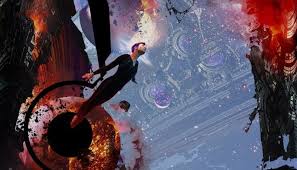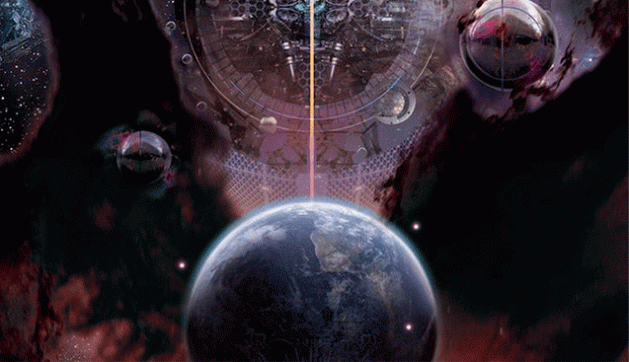
The latter two books of the Remembrance of Earth’s Past trilogy had more to do with each other than with the Three Body Problem, other than sharing a setting. If you liked Three Body Problem, these books will if anything be better.
The “dark forest problem” (introduced in the titular volume) states that any extraterrestrial intelligence possessing the means to do so will destroy any detected civilization with overwhelming force in order to minimize threats to itself. The analogy is to a dark forest where any light or movement is set upon by predators. This makes concealing the location, indeed the existence, of one’s own civilization a critical matter of survival (and also makes SETI-type active searches for life suicidally foolish). I don’t think this necessarily describes the universe we live in, but the series takes it for granted. The resulting war of all-against-all is revealed in Death’s End to be literally destroying the universe.
(That this war is conducted by progressively lowering the dimensionality of volumes of space via a process analogous to “false vacuum collapse” was a great touch, although I found Liu’s description of hyperdimensional spaces to be questionable – I don’t see how a human body could possibly function in such an environment.)
Death’s End pursues the Dark Forest scenario to its logical conclusion. Spacefarers obsess over hiding their presence and positions, and both offensive and defensive warfare measures materially alter the universe in negative ways. Everyone lives under constant threat of total annihilation without warning. As characters grow to understand the implications of the Dark Forest, they become increasingly fatalistic — sure, they might be able to make decent lives for themselves, but there is no prospect of a grand future in the universe. Ultimately we face annihilation, and the inevitable can only be delayed. The series emphasizes this by making sure not to have everything work out for the characters. Luo Ji does find a wife and makes a nice family life for himself for a while, but eventually she leaves with their child. Likewise, the characters Cheng Xin and Yun Tianming overcome incredible odds to find each other — only to be sundered at almost the last possible moment without even seeing each other. They each must content themselves with an alternative mate.
At the end though, Liu shies away from full nihilism. The Trisolarans, who had previously behaved in an extraordinarily callous if not completely hostile manner towards humans, provide a character with a self-sufficient pocket universe to live in to avoid an otherwise hopeless situation. When the “real” universe finally ends, Cheng Xin — who previously had provoked a devastating Trisolaran attack by being too mushy-headed to maintain Luo Ji’s deterrent system — volunteers to cooperate in a rather contrived prisoner’s dilemma by contributing the pocket universe’s negative entropy back into restarting the universe at the cost of her own life.
I appreciate that Liu kept some ambiguity in the “message” of Death’s End. Whether Cheng Xin’s ruthfulness was justifiable is left an open question (although I personally think she not only did more harm than good but that she could easily done the right thing in both circumstances: triggered the deterrent system and cooperated in the final dilemma). The trilogy overall deserves its widespread acclaim and popularity, and I’d recommend it for both new and veteran readers.

![{D24B5807-7660-4EBE-88C7-F8C9EB86A8F6}Img400[1]](https://sfoil.files.wordpress.com/2018/04/d24b5807-7660-4ebe-88c7-f8c9eb86a8f6img4001.jpg?resize=300%2C400)
